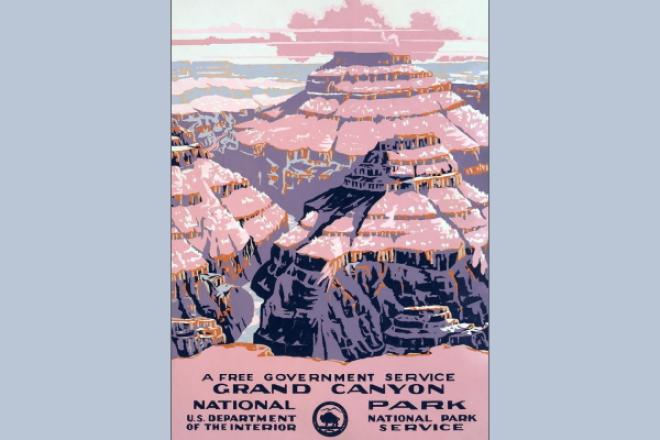National Parks in a Comparative Perspective

"Grand Canyon National Park, a free government service" (1938) poster by Chester Don Powell is public domain
Resource Description
This module invites a comparative and global emphasis in a study of national parks in USA and India. The universal quest for conservation and preservation varies in its motivation and is inevitably influenced by local histories and culture. The two sections of the module focused on the United States and India respectively bring the separate trajectories in view. In bringing a critical perspective on analyzing national parks, the module will not only look at aspirations for preserving heritage, but also see the parks as geographical and social spaces with conflicts. Conflicts between communities and flora and fauna will be a primary theme of analysis.


